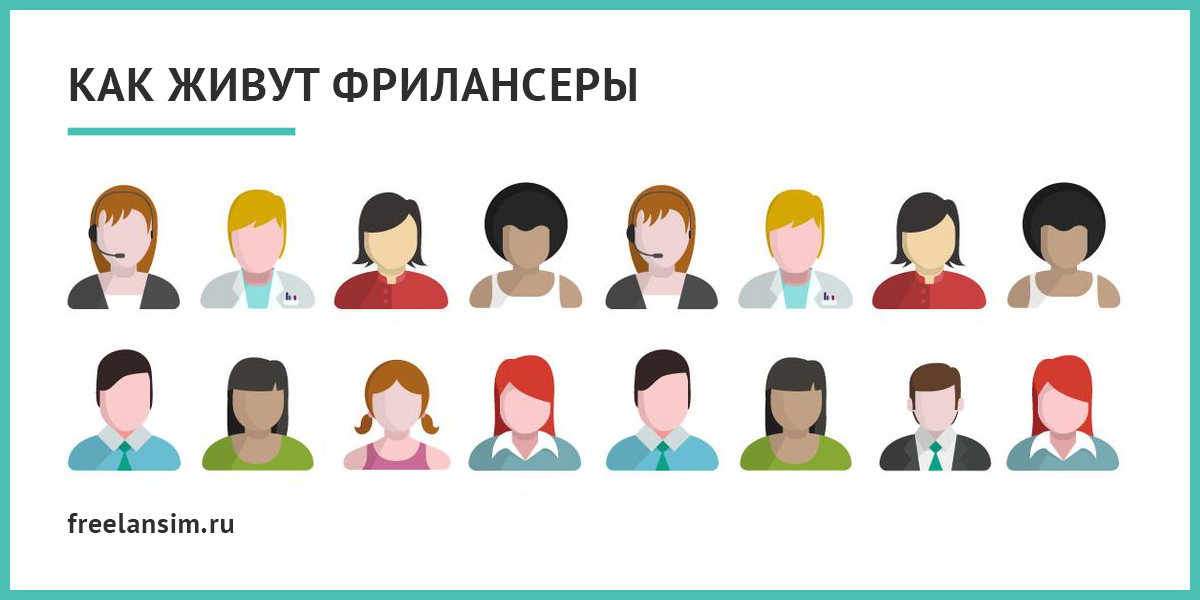How do freelancers live: from developer to technical copywriter
On the tenth issue, the guys closed the format of "10 questions to the programmer . " We in the Freelance team were upset at first, and then decided to pick up the idea with their permission. We are opening a new season in which we’ll find out how and how freelancers live.
We talked with Dmitry, a freelance technical copywriter, a former teacher and developer.
Dmitry developed software for the Western market and did the documentation for it in English. After proofreading, the texts were returned almost unchanged. “Then I realized that I could write well,” says Dmitry. At first it was a part-time job and tamping down hands, and then gradually grew into the main activity.

Dmitry Pivovarov is an engineer by education, he writes texts for technically complex products.
0. I would like to start with a question out of plan. Very much an interesting story - from development to copywriting. Do not you miss?
Sometimes miss you. And then I write some script on the site or something like that. In the process I understand that a lot has already been forgotten, and somehow lets go. Copywriting attracts versatility.
1. Describe your best freelancing project - the one you are really proud of.
In general, I am proud of almost all completed projects. I just can’t afford to work so that I don’t like the result myself. If the result of the work does not even please itself, then what's the point? Do you understand yourself what you did to "poop" and still ask for money for it? I can't do that.
Here, however, there is one more moment. In my area, the result can be checked (A / B tests, analytics, sales reports). Therefore, the final criterion of the effectiveness of my work is not so much whether my text pleases the client or even myself, but rather objective indicators. Most of the time, my feeling from the text coincides with the objective results, but a couple of times I seriously missed. When working in unfamiliar markets or niches. And perfectionism is such a convenient way to transrasse with impunity.
Now I am helping to create a new face for the company-manufacturer of POS systems for restaurants and canteens. I see the result in real time, and it is inspiring. Just the other day, this customer shared: the material that I did the day before, already brought him a client. There is an increase in site traffic, according to analytics it is clear that the materials are being read, there are more orders and so on. That is, the work brings the client a specific result. It's nice.
And so, I remember one interesting job that I was ordered almost at the dawn of my freelance. It was necessary to translate into Russian the text in Old English. The first look at the scans of these documents horrified me.
For understanding:

As a result, I managed, and it was cool. Mainly because I had to master a lot of non-standard ways of finding answers to my questions in conditions where googling is useless. I had to dig up the font styles of those years, handwriting and linguistic studies, books on jurisprudence from the time of King George (forgot his serial number, alas), just similar documents, and so on. There are a lot of terms, and even ordinary words that have not been used for a long time, and they simply do not exist in ordinary dictionaries.
In a sense, this order formed my current principles of working as a copywriter. By the way, I got a total of about $ 100. Now I understand that it was necessary to ask for two orders of magnitude more.
2. Describe your biggest failure during freelancing.
I don’t remember such straight objective files. But there was one order that I myself consider a failure. Just in terms of my compliance with my own principles of quality.
I was approached by the owner of dentistry with a request to develop some marketing materials for the franchise. Collaboration started well, but in the process of working on the next text we reached an impasse. Excellent customer, from my point of view, scolded the material. Every now and again. The edits were heavily criticized. I could not catch the general position of the customer. It was necessary to rewrite the same fragments ten times. The matter was further complicated by the fact that the client insisted solely on telephone communication, so that the analysis of just a few text phrases stretched for 2-3 hours each time.
After a month of almost daily calls, I gave up and refused to work. Feil It was right, of course, to refuse at once, or to insist on a more convenient form of review for all. In this sense, the experience is valuable, albeit negative.
3. Describe your workplace - from laptop to chair, including software and applications.
A regular table from a nearby furniture room, an ordinary IKEA chair, an ordinary Word 2003. The monitor, however, is a good iiyama, because it doesn’t work for a long time with the text on the bad - my eyes hurt. What else? Browser, communication tools (Skype, WhatsApp, mail). From specialized I use Trello to account for tasks, but more on that later. On the table - a creative mess.
4. How to effectively manage tasks and time?
I will ask this question to the following freelancer.
I do not know, to be honest. I tried a dozen different programs and services - nothing stuck. Either I work effectively on my own, and then no third-party tools are needed, or I work ineffectively, lazy, distracted, or simply do not walk, as they say. And then there is no sense from time management or task planners either. Now here I use Trello. But more to remind yourself what to do. Without any prioritization, categorization, distribution by Eisenhower squares and others.
In general, it is interesting to work on interesting tasks, and therefore it is easier to tune in. And this is probably the main way to improve the efficiency of my work, which I use.
5. Are there customers you would never work with?
The word "toxic" is now in vogue. I do not work with toxic customers. Over time, I learned to isolate them literally from the first message and immediately politely refuse to cooperate. This is not about specific phrases, but in general about the attitude. For example, "you are a performer, you owe me." Or "I myself do not know what I want, but the result I need is perfect."
In general, the ability to choose the right customer is worth a lot. There are hundreds of stories about "strange" customers, 90% of which would not have happened if the author had just said no on time.
As for projects, I try to work on what I find most interesting. Plus, the project should have at least some social significance. This means that I will definitely not write for online casinos, dubious info-products, for illegal and near-legal projects, etc. In addition, being an educated person, I cannot and do not want to write about homeopathy, flat earth, astral and other controversial topics.
The remaining restrictions are due to my qualifications. Too simple things for me (the home page of the cat Vasily) I will not do. Projects for which my qualification, on the contrary, is not enough, either. Medicine, jurisprudence, politics - here I am incompetent, and I do not take such orders, although there are offers from time to time.
6. If you had unlimited resources (time, money, power, people), what project would you do?
I have two dreams: to write a children's book - this is straight at the level of Krapivin or Rowling. And write a game - a global space strategy. For the first, I still have not enough life experience (probably), for the second - programming skills and free time.
7. What should I learn and where to become the best in your field?
Everything and everywhere. Copywriting is not about texts, but about diversified and rather deep interests. About observation. About the practice. I can hardly be the best in my field, but it seems to me that in my field it is hardly possible to reduce the answer to some complete list of literature and / or trainings.
8. The biggest freelance myth?
I do not know one. Is that the opinion that freelancing easier and more money than working "on uncle."
9. Tell about 3 favorite books - educational, popular science and art.
In my field, any book is educational. However, I would single out two books on copywriting.
First, Caples' Proven Advertising Techniques. Without exaggeration, this man drove hundreds of thousands of variants of various advertising texts through himself, collected statistics on them, analyzed and wrote a book. The book is 80 years old already, but it is still extremely relevant. The second book is modern. “Write, abbreviate” Ilyakhov. I do not fully share the ideology of the info-style that Maxim promotes, but the book transmits the general principles of writing texts very well and, unlike many other books on the topic, is argued.
I read a lot of scientific stuff (just like it), but I’ll single out one, from my point of view, masterpiece thing - Alexander Markov's “The Birth of Complexity”. Dawkins also likes it, but it is too odious in some places.
Of the artistic - "False blindness", Peter Watts. In addition to the book itself, I am very impressed with the approach to its writing, which the author outlined in the afterword.
10. If you could return to the past by the time you decided to switch to freelancing, what advice would you give yourself?
"Do not be scared".
For the protocol, another option: "Ask for more, do not be shy."
Bonus: Ask a question to the next freelancer, whom we will interview.
The main trouble freelancers - problems with self-discipline. There is software, there are services (Todoist and others). Nothing works for me. And for you?
')
Source: https://habr.com/ru/post/430486/
All Articles
